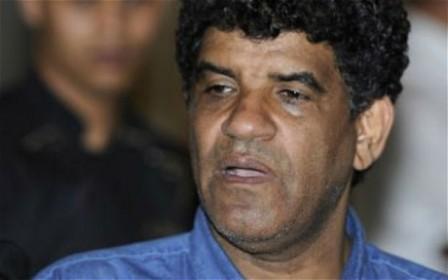AMSTERDAM, (Reuters) – International Criminal Court judges ordered Libya today to hand over Muammar Gaddafi’s former spy chief and let him see his lawyer, raising the stakes in a dispute over who has the right to try the deposed strongman’s top lieutenants.
The statement placed the Hague-based court on a collision course with Libya’s new rulers, who say Gaddafi-era leaders in their custody should face local justice over charges of mass killings and other atrocities.
The ICC judges said Libya must extradite Abdullah al-Senussi over his alleged role in orchestrating reprisals against the protesters in the 2011 uprising that overthrew Gaddafi.

“Libya remains under obligation to comply with the surrender request,” the judges said in their statement.
They would decide later how to respond if the North African state continues to hold Senussi, the judges added. The court has the power to refer the matter to the U.N. Security Council.
“The ICC has ordered an immediate halt to Libya’s unseemly rush to drag Mr. Al-Senussi to the gallows before the law has taken its course,” said Ben Emmerson, Senussi’s lawyer before the ICC.
Judges also ordered Libya to grant Emmerson access to his client.
Libya has become a test case of the effectiveness of the 10-year-old court, which relies on the cooperation of member countries to arrest suspects and enforce its orders.
A court-appointed lawyer for Gaddafi’s son Saif al-Islam was detained in Libya for a month alongside three other court officials when she attempted to visit her jailed client. Since, court officials and defence lawyers have had no contact with either Saif al-Islam or Senussi.
Most recently, allegations have surfaced that Libya paid Mauritania $200 million to ignore the ICC arrest warrant last year, sending Senussi to Tripoli rather than to the ICC’s detention centre in The Hague.
